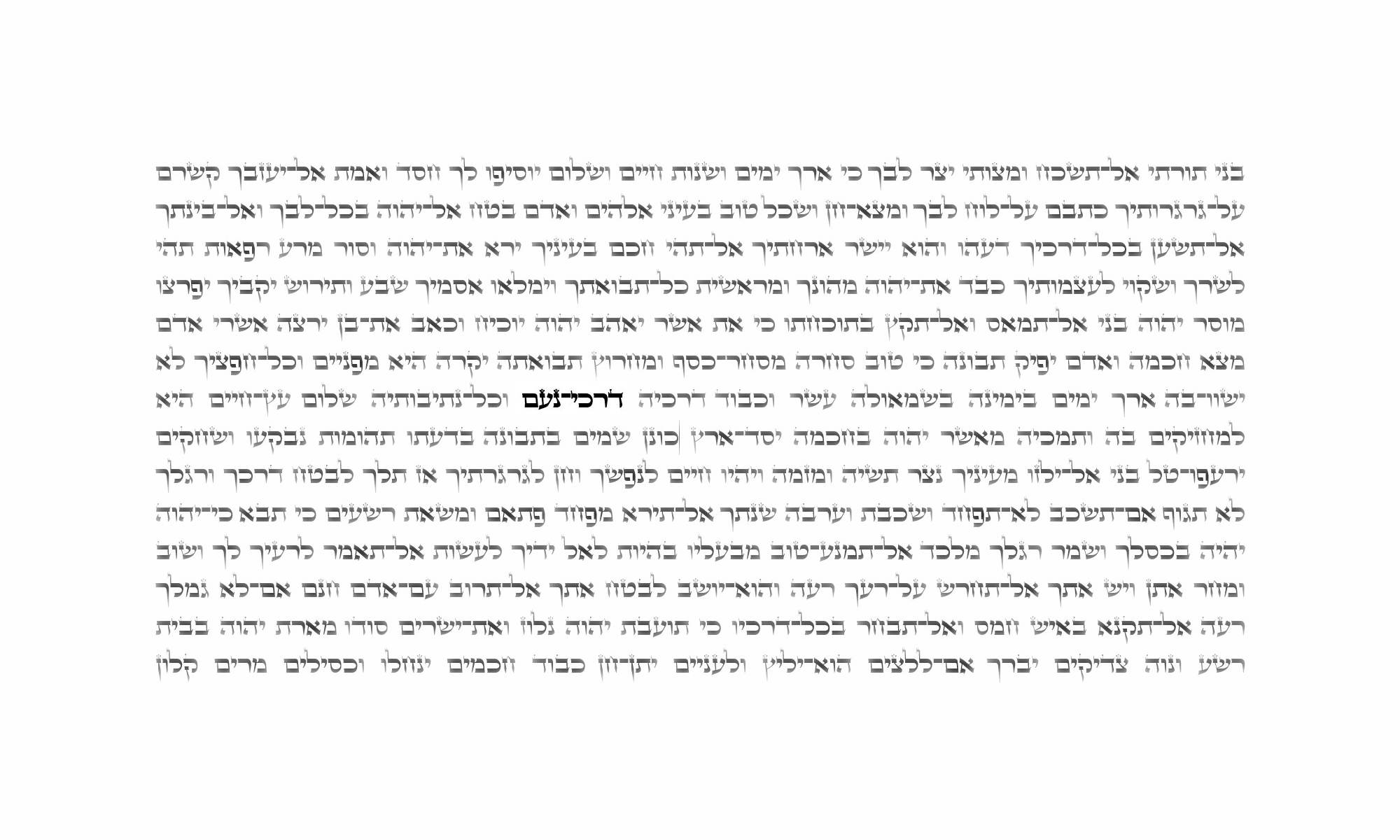In this week’s parsha, we learn about the rebellion against Moshe and Aron, led by Korach and his cohorts. One member of that cohort mentioned specifically in the first passuk (16:1) is Ohn ben Peles. However, strangely enough, after this initial reference, we do not read about Ohn again. His name is not listed among the group of men (Korach, Datan, Aviram, etc) who were swallowed up/burned as punishment for their rebelliousness. This absence seems strange given he was considered central enough to be mentioned at the outset, surely he is also central enough to know what happens to him.
There is a Gemara (Sanhedrim 109a-110a) where Rav teaches that Ohn was saved by his wife from the final punishment that the other rebels experienced. She did this by encouraging him to withdraw from the rebellion, saying:
“What does it matter to you, whether the one (Moshe) remains the master or the other (Korach) is master of the entire people…you will remain only a follower.”
Though he agreed with her logic, Ohn was reluctant to follow her advice as he had vowed them he would join Korach’s group of dissenters. In order to appease him, Ohn’s wife then convinced him to get drunk so that he would not be in charge of his faculties (and therefore patur from his vow) and then loosened her hair to deter Korach and his gang from entering his tent and encourage their retreat.
Yaakov Bieler in his online article “Parshat Korach – the Disappearing act of Ohn ben Peles” deems Mrs. Ohn’s arguments as simply pragmatic rather than spiritual.
“Mrs. Ohn might have been more enthusiastic about the rebellion, if her husband would have been in a position to personally benefit. But since she recongised that Ohn’s status would remain essentially the same regardless of who will prevail, what was the point?”
But perhaps we can give Ohn’s wife dam lecha zechut (essentially the benefit of the doubt) and explain her arguments and behaviour as based on higher motives. She might have truly wanted Ohn to avoid dissent and to uphold Moshe’s leadership. However, she chose to persuade her husband by resorting to pragmatic arguments, knowing that these would speak to her husband best. Though her true, underlying intention was spiritual and good – to keep him away from dissention and to uphold Moshe’s law – she also KNEW what would speak to her husband and appeal to him.
If this is the case, then Mrs. Ohn had wisdom and also da’as of her husband. Like many men, Ohn may have been attracted to honor. He ay not have relished being subservient to any other leader. By pointing out that in serving Korach he would be in the same boat as he was under Moshe, Mrs. Ohn was cleverly targeting Ohn’s ego and sense of practicality in order to influence him to do what she knew was right.
In other words, the way to a man’s heart may be through his stomach, but Ohn’s wife may show us that the way to a man’s soul may often be through his head. If you want your husband to be happy – give him a good steak. But if you want him to do something that you know is right spiritually, convince him with logical and practical arguments.
This idea that she knew her husband well is supported by a less well known Midrash (brought in the Torah Sheleima by R Menachem Mendel Meachem Kasher). It explains that when the earth began to swallow up Korach’s company, Ohn’s bed began to tremble and roll towards the opening. However ,Ohn’s wife seized the bed and called out:
“Oh Lord of the World, my husband made a solemn vow never again to take part in dissensions. You Who Live and Ensures throughout all of Eternity can punish him should he ever violate his vow.”
Hashem heard her plea and Ohn was saved. We might also read these additional details as support for the idea that Mrs. Ohn knew her husband well. She was so confident that Ohn was remorseful and would repent that she almost challenged Hashem to punish him if he ever reneged on his vow. Only if she knew her husband well could she possibly make this assertion to Hashem with such confidence. Isnt that just the greatest level of knowledge of one’s spouse and confidence in that knowledge?
Behind every good man is a good woman. Or in Torah terms, Mishlei (14:1): “Every wise woman builds her house, but the foolish woman pulls it down with her hands.” Note Shlomo Hamelech’s reference to hands. We might ask what other famous passuk refers to fate being in hands? Among many others, Berachot (33b) we are taught “Everything is the hands of Heaven except for fear of Shamayim.”
So if we put these two pessukim together like a maths equation, it seems that a woman can build or destroy her home only in the realm of Yirat Shamayim (because every other realm of the house, like everything else is in Hashem’s hands). In other words, wives have control only but importantly over the level of Yirat Shamayim in our house and our husbands’ Yirat Shamayim.
How can we relate this message to our parenting practice this week?
Knowing our household’s individuals and what words will speak to them and bring out their best is a vital and powerful tool of motherhood. The more we work with, observe, love and care for our family members, the more we may understand how we can best be of assistance to enhance their Yirat Shamayim and help them grow.
Wishing you a shavua tov and a beautiful week
With bracha
Chaiya Danielle Ledder
